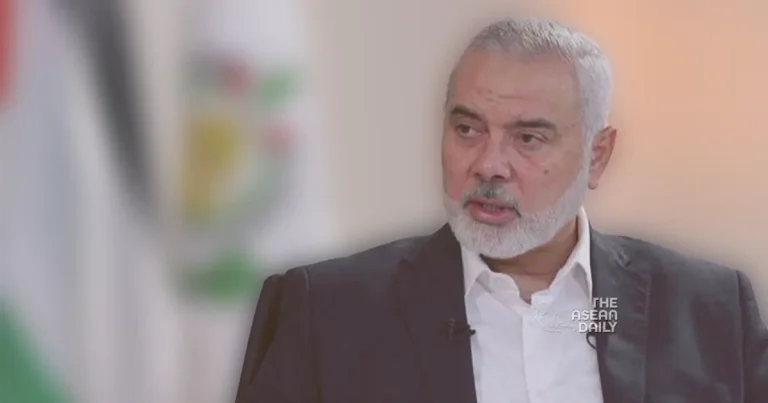20-12-2023 (GAZA) Ismail Haniyeh, the leader of Hamas, based in Qatar, embarked on a visit to Egypt on Wednesday, raising expectations of a potential truce and a deal for the release of hostages in the Gaza conflict involving Israel and the Palestinian militant group.
In a statement, Hamas confirmed that Haniyeh arrived in Cairo for discussions on the “aggression in the Gaza Strip and other matters.” A source close to the group revealed that Haniyeh was scheduled to meet with Egypt’s spy chief to address issues related to “stopping the aggression and the war, preparing an agreement for the release of prisoners.”
Earlier, Haniyeh held talks with Iranian Foreign Minister Hossein Amir Abdollahian in Qatar before leading a “high-level delegation” to Egypt, a nation frequently acting as a mediator between Israel and the Palestinians.
Israeli Prime Minister Benjamin Netanyahu, addressing hostage families, conveyed his commitment to the release of all hostages. He disclosed that Mossad chief David Barnea had engaged in talks with key figures, including CIA director Bill Burns and Qatari Prime Minister Sheikh Mohammed bin Abdulrahman Al Thani in Europe.
According to Axios, Israel proposed a week-long pause in the Gaza conflict in exchange for the release of more than three dozen hostages held by Hamas. The conflict began on October 7 when Hamas militants from Gaza entered Israel, resulting in casualties and abductions.
International pressure for a new truce has intensified, with the United Nations scheduled to vote on a ceasefire resolution after delays. Israeli President Isaac Herzog expressed readiness for a humanitarian pause and additional aid to facilitate hostage release.
Amid ongoing hostilities, video footage released by the Islamic Jihad group claimed the existence of two hostages in Gaza, adding pressure on Israel. The UN Security Council was set to vote on a resolution calling for the “suspension” of hostilities, following previous delays.
As the conflict persists, Israeli military spokesman Daniel Hagari announced the expansion of operations in southern Gaza’s Khan Yunis area. The UN estimates a significant displacement of Gaza’s residents, with concerns rising about the limited capacity of aid groups to assist.
The situation in Gaza remains dire, with the UN warning of a perilous winter for young Gazans, particularly regarding child deaths due to disease. The United States, while supporting Israel, joined Britain in urging a more targeted approach to protect civilians in Gaza.
The Gaza conflict has raised concerns about regional escalation, leading to cross-border exchanges between Israel and Iran-backed Hezbollah militants in southern Lebanon. Additionally, Yemen’s Iran-backed Houthi rebels have targeted vessels in the Red Sea in solidarity with Palestinians, prompting the creation of a multinational naval task force to protect the waterway.
The Houthi rebels vowed to continue their attacks, warning that any country opposing them would have its ships targeted in the Red Sea. In response to Israel’s actions, Malaysia announced the prohibition of Israeli-flagged cargo ships from docking at its ports and barred ships en route to Israel from loading cargo at any port in the country.
As the world watches developments unfold, the complex dynamics of the Gaza conflict persist, with diplomatic efforts and international interventions playing a crucial role in shaping the path forward.




